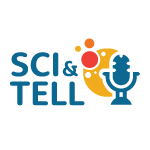Night of the Killer Smog
Priya Nanjappa’s job is to use her wildlife and environmental expertise to help develop policies in Colorado. One of the first environmental laws enacted in the US is the Clean Air Act of 1970. We talked about why this law was enacted on Third Pod from the Sun – check it out!
Read MoreThe Changing Climate’s Snowball Effect
Priya Nanjappa’s job is to use her wildlife and environmental expertise to help develop policies in Colorado. We’ve been seeing the dangerous affects of climate change over the past few years- can policies help mitigate them? Read more in this Eos article:
Read MoreHow the “Best Accidental Climate Treaty” Stopped Runaway Climate Change
Priya Nanjappa’s job is to use her wildlife and environmental expertise to help develop policies in Colorado. Check out this Eos article to see how effective science policies are- even accidentally:
Read MoreForecast: 8 Million Energy Jobs Created by Meeting Paris Agreement
Priya Nanjappa’s job is to use her wildlife and environmental expertise to help develop policies in Colorado. Science policies don’t just help save the Earth- they create jobs:
Read MoreTracking Sustainability Goals with Creative Data Sources
Priya Nanjappa’s job is to use her wildlife and environmental expertise to help develop policies in Colorado. Wondering how that works? Read this Eos article about how nontraditional data sources help develop science policies:
Read MoreSpecifically Tailored Action Plans Combat Heat Waves in India
Priya Nanjappa’s job is to use her wildlife and environmental expertise to help develop policies in Colorado. Many recent science policies are developed to help combat climate change. For example, Ahmedabad, a city in Gujarat, India, is the first city in the country to create a heat action plan to combat frequent heat waves:
Read MoreUnderstanding Our Environment Requires an Indigenous Worldview
Priya Nanjappa is an expert in wildlife and environment- at least we think so! There’s no understanding the environment without indigenous knowledge. @AGU_Eos goes in depth:
Read MoreClimate Change Is Making India’s West Coast More Vulnerable to Cyclones
Paula Buchanan’s job involves helping the public prepare for natural disasters-particularly hurricanes (or cyclones). Climate change is making cyclones more dangerous, and one area that is particularly vulnerable this is India’s West Coast. Read more in @AGU_Eos:
Read MoreSpecial Release: Tribes, Trails, & Tailings
Science isn’t more important than the communities where you are researching. Paula Buchanan is always conscious of helping the communities that are affected by what she studies. And on a previous #ThirdPod ep, we spoke to indigenous scientists about working in their communities.
Read MorePolluted Water Everywhere, and Not a Drop to Drink
Saleh Ahmed researches climate change in coastal Bangladesh and India, helping to ensure safe conditions for everyone. In a previous Third Pod episode, we talked to Chris Scott, who is working on making sure everyone has access to clean water:
Read MoreSpecifically Tailored Action Plans Combat Heat Waves in India
Saleh Ahmed researches climate change in coastal Bangladesh and India. India has been facing unprecedented heat waves over the past decade, and one city decided to take action:
Read MoreIs Your Home at Risk of Experiencing a Natural Disaster?
Saleh Ahmed studies natural hazards in Bangladesh and the US- learn more in his Sci & Tell episode. Are you at risk of facing a natural disaster? Find out in this Eos article:
Read MoreWhat Five Graphs from the U.N. Climate Report Reveal About Our Path to Halting Climate Change
Saleh Ahmed researches climate change in South Asia and the US. Listen to his Sci & Tell episode for more. The recent IPCC report highlighted just how urgent climate reform is. Eos provides a summary of the report here:
Read MoreWhen the Sahara was Green
Saleh Ahmed studies climate change in South Asia and the US. Listen to his Sci & Tell episode for more. How important is climate change? Well, did you know the Sahara Desert was once green…
Read MoreThe Wicked Problem of Earthquake Hazard in Developing Countries
Saleh Ahmed researches natural hazards in Bangladesh. Bangladesh is an earthquake-prone country, but without crucial information it’s difficult for them to prepare for disaster:
Read MoreWhen Climate Adaptation Intervention Risks Further Marginalization
Saleh Ahmed is working on bringing equity to climate research and justice. Learn more in his Sci & Tell episode. Even solutions to climate change are affecting marginalized communities- read about it in Eos:
Read MoreNeed for Rational Thinking for Predicting Floods and Droughts
Saleh Ahmed studies climate change in South Asia and the US. When mitigating climate change, it’s important to take an interdisciplinary route- this Eos article highlights a paper that elaborates:
Read MoreBuilding Resilience in Rural America
Part of Saleh Ahmed’s research is studying how climate change is affecting rural America. You can learn more in his Sci & Tell episode. So how is rural America dealing with the effects of climate change? Find out in this Eos article:
Read MoreSpecial Release: Climate change, tree rings, and string theory
Saleh Ahmed is a climate scientist and Voices for Science Advocate. Kate Marvel is as well, and we got to interview her on Third Pod last year:
Read MoreHuman Activity Makes India’s Coastlines More Vulnerable
Saleh Ahmed researches climate change in coastal Bangladesh and India. Listen to his Sci & Tell episode for more. This article in the March 2021 Eos issue talks about how human activity is affecting India’s coastlines:
Read MoreEos March 2021: Before and After the Disaster
Saleh Ahmed is working on bringing equity to natural hazards research. So are other scientists- in fact, the March 2021 Eos issue is all about that:
Read MoreThe unusual relationship between climate and pandemics
Saleh Ahmed studies the effects of climate change in South Asia and the US. You can learn more in his Sci & Tell episode. Did you know climate change can also affect pandemics (😐)? Check out this Third Pod episode for more:
Read More